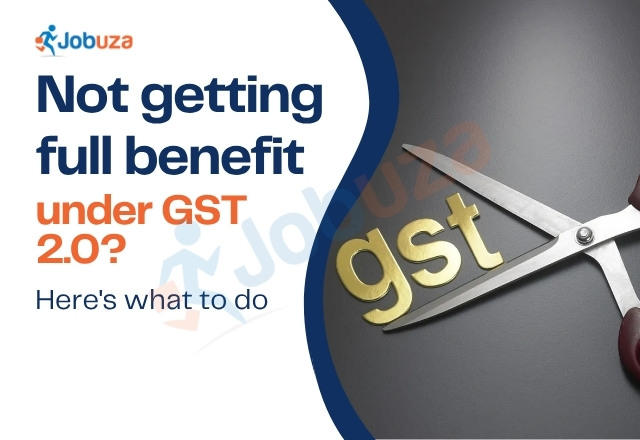GST 2.0 Tips: It has been over two weeks since GST 2.0 came into effect, but many consumers are yet to see a noticeable drop in prices. Despite the government’s effort to reduce tax rates on dozens of goods and services, a recent survey indicates that the benefits have not fully reached large sections of shoppers.
According to a LocalCircles survey with more than 78,000 responses from over 27,000 participants across 332 districts, the pass-through of GST 2.0 benefits remains uneven.
Key Findings:
-
Automobiles: The only category showing widespread compliance, with 76% of buyers reporting full benefits.
-
Food Items: Only 10% of respondents saw full GST benefits on packaged foods, while 47% noticed no price reduction.
-
Medicines: Around 10% of consumers reported full benefits, 24% experienced partial relief, and over 60% said prices remained unchanged.
-
Appliances & Consumer Electronics: About one-third of buyers noticed full benefits, with another third seeing partial reductions.
The revised GST was designed to make nearly 80 essential and aspirational goods more affordable. Daily items like paneer, UHT milk, and essential medicines now carry tax rates of 0–5%, while cars, refrigerators, and air conditioners saw reductions from 28% to 18%.
However, in practice, retailers charging older prices have slowed the impact. Many are still selling pre-GST stock at old rates. Online platforms such as BigBasket, Tata 1mg, Amazon, Myntra, and Ajio have also been flagged for showing outdated prices.
GST 2.0 Tips: Experts highlight the complexity of last-mile compliance. With millions of retail touchpoints in FMCG and pharmaceuticals, ensuring every retailer passes on GST 2.0 benefits is a challenge. The government has responded by directing the National Consumer Helpline (NCH) and the Central Board of Indirect Taxes and Customs (CBIC) to monitor complaints closely.
What You Can Do If You Are Overcharged
Consumers who notice that GST reductions haven’t been applied can take action. Filing a complaint is straightforward:
-
Call: Dial 1915 to reach the National Consumer Helpline.
-
Online: Submit a complaint via the NCH website or mobile app.
-
Other Options: Email or WhatsApp your grievance.
Complaints are accepted in 17 languages, making the process accessible nationwide. GST-related complaints now have a dedicated category for faster resolution.
Experts stress that filing a complaint not only protects your rights but also ensures accountability in the marketplace. Each registered grievance signals to retailers that GST reductions are mandatory and not optional.
If you’ve been charged extra despite GST 2.0 rate cuts, take action. It’s your right as a consumer, and your complaint helps ensure that GST benefits reach every household as intended.


